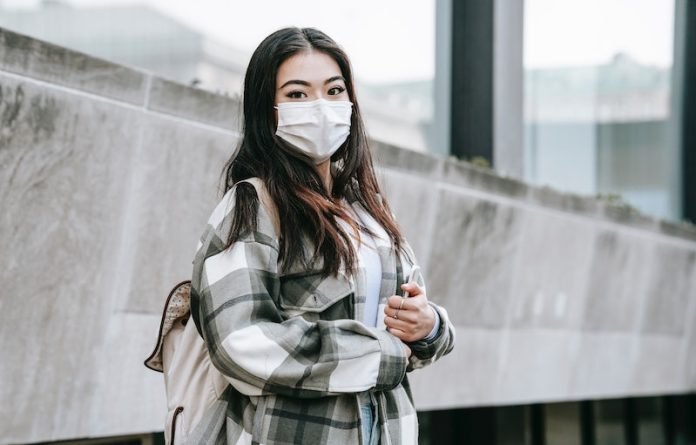
In a study from CU Boulder, scientists found lifestyle choices—such as eating healthy, staying active as well as resting after exercise, and managing stress—may help prevent people from developing severe COVID-19 and mitigate post-infection conditions and symptoms.
The team details various biological mechanisms, resulting from modern living, that predispose humans to chronic, low-level inflammation and incline them toward even more damaging inflammation when fighting off COVID-19.
The publication details how existing chronic inflammation combined with an out-of-balance gut microbiome (the collection of resident bacteria in one’s lower digestive system) predisposes the immune system to overreact.
In humans, this overzealous inflammatory response to SARS-CoV-2 can lead to severe disease, organ damage and death.
The team found modern lifestyle—the food people eat, how sedentary people are, and how stressed out people are on a regular basis—throws the immune system and microbiome off-balance.
They suggest that If people make small tweaks in exercise, diet and stress, those can all act together to help reduce this uncontrolled inflammation that COVID is superimposed upon.
Here are the fours they recommend people do:
Spice up your life
Berries and fiber-rich fruit and vegetables support the lung and gut microbiome, enhancing our defenses against viral disease.
Dark leafy greens like kale and spinach, as well as canned fish (sardines, tuna) high in omega-3 fatty acids and canned corn can all help rebalance inflammatory responses, the authors report.
Whole-grains, nuts and seeds support the kinds of microbes that restore balance.
Spices and herbs—both fresh and dried—aren’t just flavorful, but food for the microbes we depend on.
Add cinnamon to your oatmeal, rosemary to your potatoes, and nutmeg, cloves and ginger to your pumpkin-themed food or drink this fall.
Add extra dried oregano or fresh basil to pizza or pasta, cardamom to your chicken or cumin in your breakfast burrito.
The team suggests, for the most part, to skip the supplements, especially high-dose ones. The best way to get the necessary nutrition on your microbes’ menu is to get them directly from your favorite foods.
Pace yourself
We should be just as careful about overexerting our bodies as not moving them enough.
While regular physical activity can reduce run-away inflammation and boost immunity, exhaustive exercise without sufficient recovery can actually promote non-resolving inflammation and may exacerbate COVID-19 disease risk.
So, if you regularly push your body, make sure to build in time for adequate rest and recovery.
And if you are actively sick or recently recovered, realize that the amount of physical activity your body can handle will likely be different for a while.
Taking the stairs, going on walks and doing stretches and exercises at home all offer substantial benefits. And if you do want to ramp up your workout routine, do so gradually and build in plenty of recovery time.
Take time to manage stress
Unfortunately, chronic psychological stress can also wear us down and contribute to non-resolving inflammation in the body, as well as disrupt our gut microbiome.
And research shows women have been more likely to experience intense stress, eat poorly and move their bodies less since the start of the pandemic.
Yoga, therapy, mindfulness-based meditation practices and acupuncture have all been shown to reduce the harmful chronic, non-resolving inflammation that contributes to severe COVID-19.
Our bodies and minds also reap benefits from just 5 to 10 minutes a day of deep-breathing, journaling or letting one’s mind wander while on a walk, according to research compiled in the new publication.
Something over nothing
The good news, the authors stress, is that everything counts: Every time you take the stairs instead of the elevator, eat something with herbs and spices, or sit down and just breathe deeply for five minutes can have an impact.
People are also quick to blame themselves for not doing something well enough, when often there are barriers we can’t control.
Can’t afford healthier meals? Don’t feel safe going on walks in your neighbourhood? Simply do what you can.
If you care about COVID, please read studies about the cause of long COVID ‘brain fog’, and a drug combo that could help treat COVID-19.
For more information about COVID, please see recent studies that scientists find antibodies that block all the COVID-19 variants, and results showing flu, COVID-19, and related vaccines may increase heart disease risk.
The study was conducted by Elizabeth Enichen et al and published in the American Journal of Lifestyle Medicine.
Copyright © 2022 Knowridge Science Report. All rights reserved.



